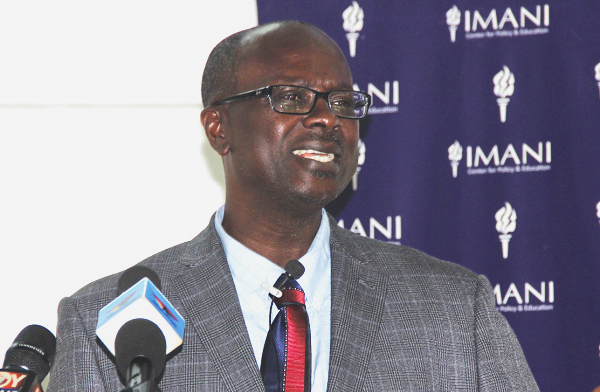
Delay of ROPAL time bomb — Professor Asare
The constitutional provision that bars Ghanaians with dual citizenship from holding public office and participating in the politics in Ghana is a ticking time bomb that would explode soon, a US-based Ghanaian Professor, Stephen Kwaku Asare, has warned.
The professor, who is famous for initiating a number of public-interest litigations at the Supreme Court, observed that there was a clear precedent from other parts of Africa to suggest that citizens who were discriminated against did stand up for their rights with dangerous consequences.
Advertisement
“All the conflicts in post-independent Africa start because some citizens put themselves in a position where they think they are better than other citizens or more trusting than others. They question the loyalty of other citizens which is what we are doing here. There would be a time when dual citizens would not stand for it. I am afraid of the consequence of them saying they won’t tolerate it anymore,” he said.
Laws that need repeal
Delivering a lecture organised by policy think tank IMANI on plural citizenship, allegiance, exclusion and political participation, Prof. Asare said the provisions of the country’s legal framework on dual citizenship namely Article 94(2)(a) of the 1992 Constitution, Articles 8 (2) as amended in 1996, Section 16 of the Citizenship Act, 2000 (Act 591), as well as a section of Special Prosecutor Act 2018 (Act 595) needed to be repealed because they were discriminatory.
He argued that Article 94(2) (a) had been misinterpreted to mean that Ghanaians with dual citizenship did not qualify to hold some very important public office, as well as higher ranks in the security services.
Toxic
Prof. Asare said the aforementioned laws were toxic and cited the decision of the New Patriotic Party(NPP) to withdraw a proposal that barred dual citizens from holding national office in the party at its delegates’ conference last year as an example of how the country’s laws on the rights of dual citizens to be elected were archaic.
“If the NPP, as a party, thinks this law is toxic, it clearly shows that it is also toxic at the national level and should not be part of our statutes. By merely asking people to denounce their citizenship before they take public office does not immediately change anything. It is either we are for plural citizenship or we are not,” he added.
Rawlings example
Prof. Asare cited former President J.J. Rawlings as an example of dual citizen who led the country creditably and even admitted on oath that he was a dual citizen when his citizenship was challenged in 1992, prior to the 1992 elections.
While the country was in transit to return to multiparty democracy in 1992, the Founder of the erstwhile Third Force Party, Dr John Bilson sued Mr Rawlings, claiming that the PNDC chairman and NDC candidate for the 1992 elections was not a Ghanaian national and was ineligible to stand in the elections.
The Interim National Electoral Commission was the second defendant in the suit which claimed that Mr Rawlings, who had a Ghanaian mother and a Scottish father, was not Ghanaian.
He said there was no evidence to suggest that dual citizenship holders betrayed the country in any form but added that there were evidence pointing to the fact that some public office holders who had spent all their lives in Ghana engaged in unpatriotic acts.
ROPAL
In December last year, an Accra High Court ordered the Electoral Commission to implement within 12 months, the Representation of the People Amendment Act also known as the ROPAA Law, 2006 (Act 699).
With the court order in mind, Prof. Asare said, “ROPAL is coming on board and Ghanaians overseas will vote very carefully and look at what politicians are doing with respect to their rights.
“They will take on people who stand in their way in participating in the political process. At least, I would make the effort to ensure that any politician who stands in our way gets strict treatment from voters,” he said.
Supreme Court decision
Prof. Asare is not new to the fight for dual citizens. In 2012, the Supreme Court, gave judgement in a case before it outlawed dual citizenship cards in Ghana.
However, the court upheld the argument of the Attorney General that Ghanaians with dual citizenship could find themselves in a situation of conflict of interest when they were to take a decision that involved the other country.
Prof. Asare said the court took a wrong decision which justified the curtailment of the fundamental right of equality and gave limited rights to dual citizens.
The Vice-President of IMANI, Mr Kofi Bentil, who made a strong case for dual citizens, said they contributed a lot to the country’s development.




